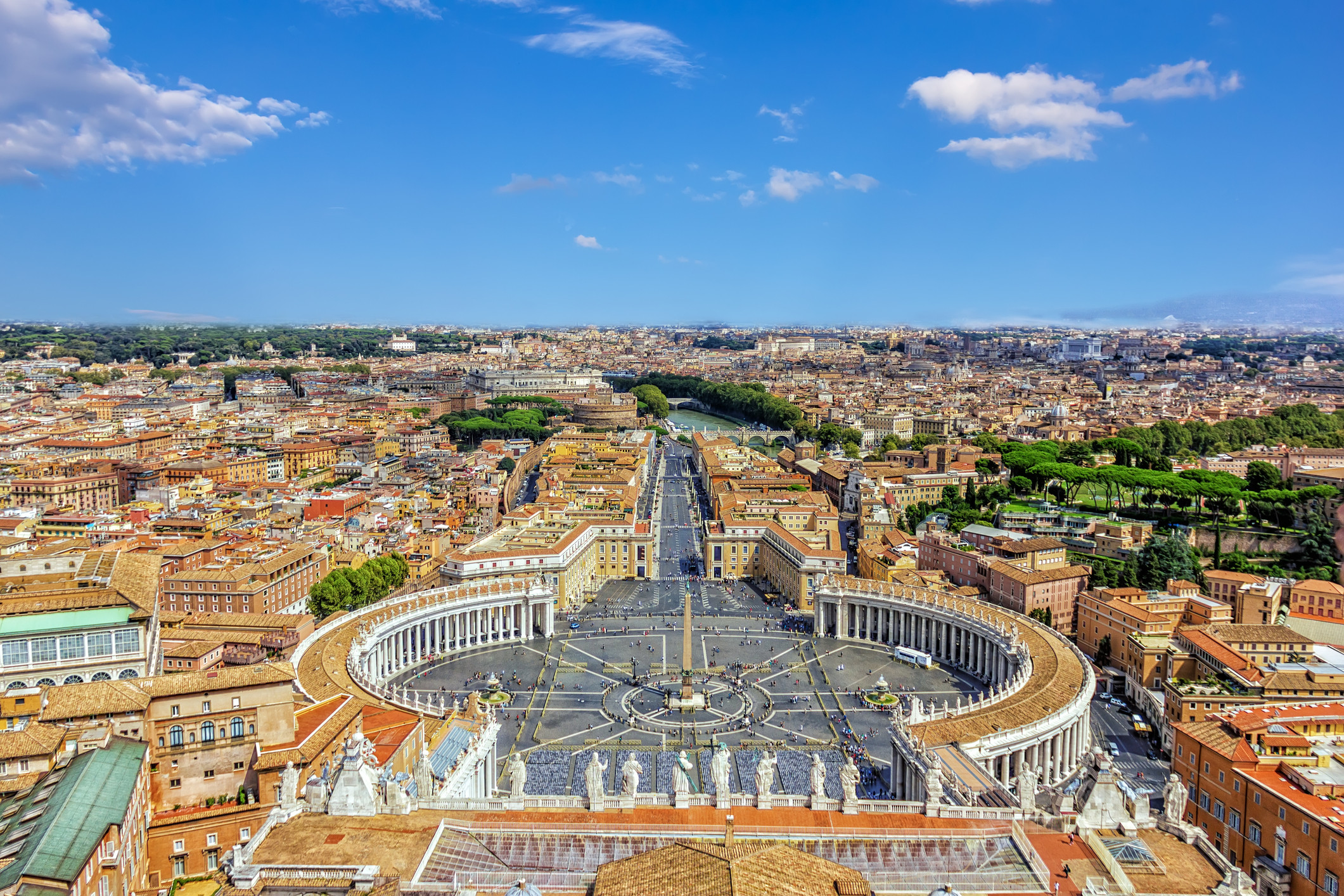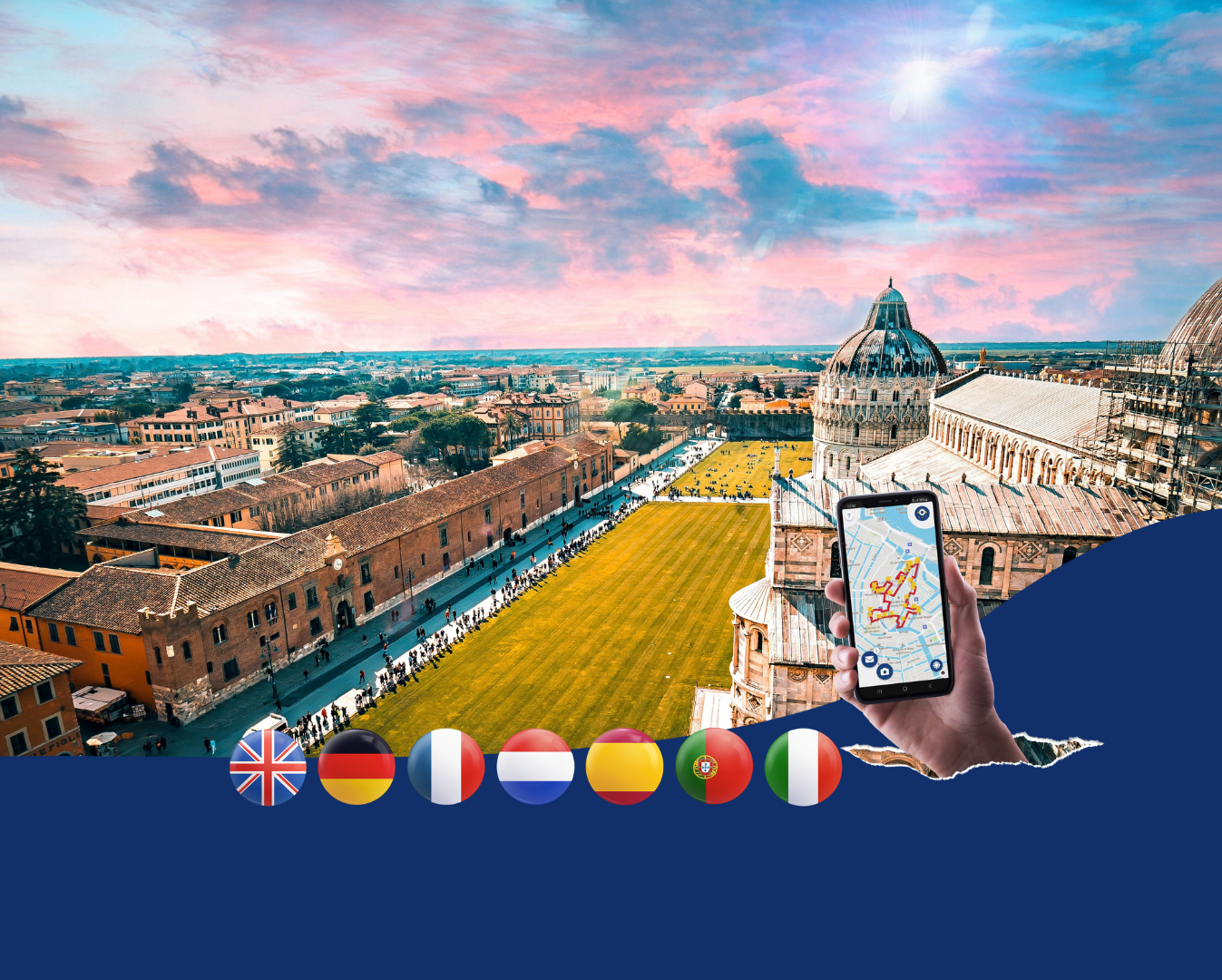
Why CityAppTour?
Explore a city in 1 day
Stories from local guides
Pause whenever you want
Affordable
Stress-free navigation with audio guidance
English guide
The Eternal City holds over 2,500 years of history within its ancient walls, where emperors once ruled and Renaissance masters created their masterpieces. From the imposing Colosseum to the intricate details of Bernini's fountains, Rome presents a living museum where every street corner tells a different chapter of Western civilization.
These stories unfold through your headphones as you navigate Rome's cobblestone streets at your own pace. With a self-guided tour Rome experience, you'll discover the context behind iconic landmarks while having the freedom to linger at a charming café or explore that intriguing side street whenever inspiration strikes.

Besides our audio guide, there are many other ways to discover Rome. Here are some suggestions that can enrich your visit:
Best Time to Visit
Spring (April-May) and fall (September-October) offer the most pleasant weather for Rome walking tours, with mild temperatures perfect for exploring. Summer brings intense heat and crowds, so start your self-guided tours Rome experience early in the morning and take advantage of afternoon siestas. Winter offers fewer tourists and magical Christmas decorations, though some fountains may be drained for maintenance.
Getting There
Rome has two international airports: Fiumicino (FCO) for major carriers and Ciampino (CIA) for budget airlines. From Fiumicino, take the Leonardo Express train directly to Termini Station. The city center is best explored on foot, but the metro (lines A and B) efficiently connects major Rome attractions. Consider purchasing a 24/72-hour Roma Pass for unlimited public transport and museum discounts.
Opening Hours and Holidays
Most museums and Rome sightseeing tours sites open from 9:00 to 19:00, with last entry typically one hour before closing. Many restaurants close between lunch (12:00-15:00) and dinner (19:30-23:00). Shops often observe a midday break from 13:00-16:00, especially in summer. Rome essentially shuts down on August 15th (Ferragosto) and many locals leave the city during August, though major tourist sites remain open.
Comfort on the Go
Rome's uneven cobblestone streets demand comfortable walking shoes – this is non-negotiable for enjoying the best tours in Rome. Carry a refillable water bottle to use at the city's many drinking fountains (nasoni). In summer, pack sunscreen and a hat as shade can be limited in ancient sites. A portable phone charger is essential for using map apps and your audio guide throughout the day.
Local Customs and Etiquette
Romans take their coffee standing at the bar (sitting costs more). When visiting churches, shoulders and knees must be covered. Tipping isn't obligatory – a small rounded-up amount or leaving the change is appreciated but not expected. Dinner typically starts after 8:00 PM, and rushing through meals is considered unusual. When exploring hidden gems in Rome, greet shopkeepers with "Buongiorno" (good day) or "Buonasera" (good evening) when entering.
How much time should I plan for a visit to Rome?
You need at least 3-4 days to experience Rome's essential sights. Our self-guided tours Rome experience can be completed in about 3-4 hours if walked continuously, but the beauty lies in setting your own pace. Most visitors spread it across a full day, stopping for espresso at a piazza, lunch at a trattoria in Trastevere, or gelato breaks while discovering Rome's hidden gems.
What makes Rome different from other Italian cities?
Rome uniquely combines three distinct identities: ancient imperial capital, center of Catholicism, and modern Italian metropolis. Unlike Florence's Renaissance focus or Venice's maritime heritage, Rome spans over two millennia of continuous habitation and architectural evolution. The city also contains a country within its borders (Vatican City) and features more ancient obelisks than Egypt itself.
Why choose an audio guide instead of a guided tour in Rome?
An audio guide gives you complete freedom to explore Rome walking tours at your own pace without being rushed past sites that interest you. During summer heat or crowded periods, you can pause whenever needed for gelato breaks or to explore intriguing side streets. Unlike group tours with fixed schedules, our Rome sightseeing tours let you start when you want and spend as long as you wish at each location.
Do I need internet while walking?
No, our Rome walking tours work completely offline after initial download. This is particularly valuable in Rome where cellular data can be spotty in narrow streets and ancient buildings with thick walls. We recommend downloading the tour before leaving your accommodation's WiFi, though free WiFi is available in many piazzas and cafés throughout the city.
Is the tour suitable for children?
Yes, though our Rome audio guide is primarily written for adults. Children from about 12 years old will enjoy the stories about gladiators, emperors, and the fascinating legends behind Rome's fountains and statues. For younger children, we recommend breaking the tour into smaller sections and complementing it with gelato stops and visits to Villa Borghese park.
Can I share the tour with my travel companions?
Absolutely! Our Rome walking tours can be enjoyed by multiple people together. Each person can use their own device with headphones, or you can share one device. We offer special group discounts for the best tours in Rome – check our Rome product page for current offers and family packages.
What else is there to do in Rome?
Beyond our audio guide, Rome offers exceptional culinary experiences – consider a food tour in Testaccio market or a pasta-making class. For a unique perspective, take an evening Vespa tour to see the monuments illuminated, or visit the catacombs along the Appian Way for a glimpse into early Christian Rome. See our "Things to Do in Rome" section for more recommendations.
Is there a free tour in Rome?
While "free" walking tours exist in Rome, they typically expect substantial tips (€15-20 per person) and often rush large groups through crowded sites. Our self-guided tours Rome experience offers better value with professional narration, carefully researched content, and the freedom to explore at your own pace for a fixed, transparent price – without the pressure of determining appropriate gratuity.
Who is CityAppTour?
We're a team of historians, local experts, and storytellers passionate about revealing Rome's many layers beyond the obvious tourist sites. Each of our Rome walking tours is crafted after extensive research in historical archives and conversations with local residents to ensure you experience the authentic character of neighborhoods like Trastevere and Monti, not just the postcard views.
How can I see Rome in one day if I'm short on time?
While challenging, seeing Rome in one day is possible with our audio guide. Start at dawn with the Spanish Steps and Trevi Fountain before crowds arrive, then use our tour for the historic center. In the afternoon, visit either the Vatican Museums or the Colosseum (with pre-booked tickets), and end with sunset at Palatine Hill or Gianicolo for panoramic views. Our audio guide helps maximize your limited time with efficient routes.
Which Rome neighborhood is best for food?
Testaccio is considered Rome's true food neighborhood by locals, away from tourist traps. This working-class district houses Rome's best food market and traditional trattorias serving authentic carbonara and amatriciana pasta. Trastevere offers more atmospheric dining but has become touristier. For the best gelato, seek shops displaying "gelato artigianale" (artisanal) and avoid brightly colored mounds – natural ingredients produce more subdued colors.
Is the Roma Pass worth buying for visitors?
The Roma Pass can be worthwhile if you plan to visit multiple museums and use public transportation frequently. The 72-hour pass includes free entry to two museums/archaeological sites (including the Colosseum) and unlimited public transport. However, it doesn't include Vatican Museums. For those focusing on Rome walking tours and just a few major sites, individual tickets may be more economical.
"The audio guide revealed layers of history I would have completely missed on my own. Walking through the Jewish Quarter while learning about its 2,000-year history gave me goosebumps – and I could pause whenever I wanted to explore a fascinating side street." — Aiofe, Ireland
"As someone who hates being herded around in tour groups, this self-guided Rome experience was perfect. The stories about the power struggles behind Rome's baroque fountains were fascinating, and I loved being able to revisit sections when something caught my interest." — Bryan, Canada
"Ik dacht dat ik Rome al kende na drie eerdere bezoeken, maar deze audiogids bewees me aangenaam het tegendeel! De verborgen parels in Rome die ik ontdekte, van geheime uitkijkpunten tot kleine werkplaatsen waar ambachtslieden nog steeds Renaissance-technieken beoefenen, maakten deze reis bijzonder. Plus, geen ongemakkelijke koptelefoons of moeite om een gids te horen op drukke plekken!" — Johnny, België
Reviews